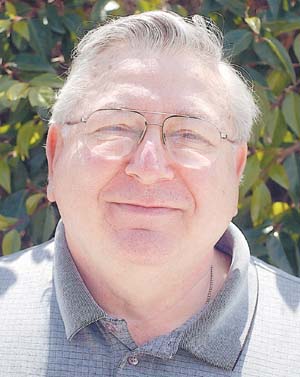I gave my column the title
”
Only Human
”
three years ago as a preemptive defense for my inevitable errors
because that’s what I am, only human. During that time, I have
generally stayed away from religious subjects because it’s always
personal and sensitive, but Christmas seems like an appropriate
time to discuss ideas about God.
I gave my column the title “Only Human” three years ago as a preemptive defense for my inevitable errors because that’s what I am, only human. During that time, I have generally stayed away from religious subjects because it’s always personal and sensitive, but Christmas seems like an appropriate time to discuss ideas about God.
Christmas is America’s biggest religious holiday, crass commercialism aside. That’s not surprising because 76 percent of Americans self-identify as Christians. Regardless of religious preference, 92 percent of Americans – including one in five of those who call themselves atheists – say they believe in God or a universal spirit according a survey by the Pew Forum on Religion and Public Life.
The 2008 survey interviewed more than 36,000 adults in one of the largest polls of Americans’ religious beliefs ever conducted. The results “detailed Americans’ deep and broad religiosity” according to the Washington Post.
No one has been able to prove the existence of God, a term I will use here to include a universal spirit. Over time, people tend to discard beliefs they do not need, but they are not discarding the concept of God. Therefore, it appears that most Americans have a need to believe in some form of higher power whether or not they formally practice a particular religion.
Like many others, I have developed my own ideas about God. That’s handy because I can make my God fit my personal preferences to explain all the inconsistencies that fixed ideas about God constantly bump into. For example, the easiest way for me to explain the existence of evil in the world is to say that God makes mistakes.
By giving my God human fallibility, I have also opened the door for all kinds of mischief. If God can make mistakes, how are we to differentiate humans from God? One may argue that God is omnipotent, but what if God simply refuses to do miracles, how could you then prove that God was not merely a human claiming to be God?
French philosopher Rene Descartes (1596 – 1650) offered the famous postulation, “I think, therefore I am” to prove that one’s mind exists. It relies on the act of doubting as proof of one’s own being. Logically, believing in God or doubting God’s existence does not prove or disprove God exists. The ultimate basis for belief in God is not proof; it is faith. That means the argument will go on forever.
Modernity is going to put many concepts of God to the test as never before. Soon we will be building virtual worlds indistinguishable from physical worlds, growing organs and creating life. We used to call that “playing God” because we attributed things to God we did not understand. Now that we understand them, they are less God-like but no less wonderful.
Recent discoveries have tripled the estimated number of stars in the universe to an unimaginable 300 sextillion. That is a 3 followed by 23 zeros. There are likely trillions of planets like ours; are we to believe that none but ours sustains intelligent life? New theories even speculate that the universe may be endless and that parallel universes can exist – endlessness on endlessness. That’s a scary thought to many humans.
God may be only a construct of the human mind, one that can be accepted or rejected as individuals see fit, but that does not reduce the value of the concept. No theory about the creation of the universe is provable so far. The last question will always be, “what happened before that?” and it will probably remain forever unanswered.
Merry Christmas to all.
Marty Richman is a Hollister resident.










